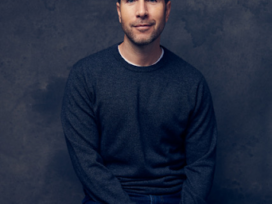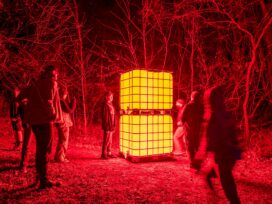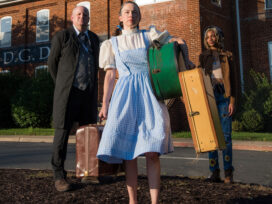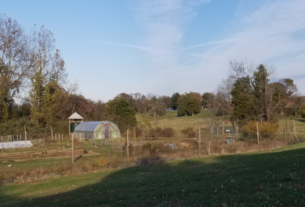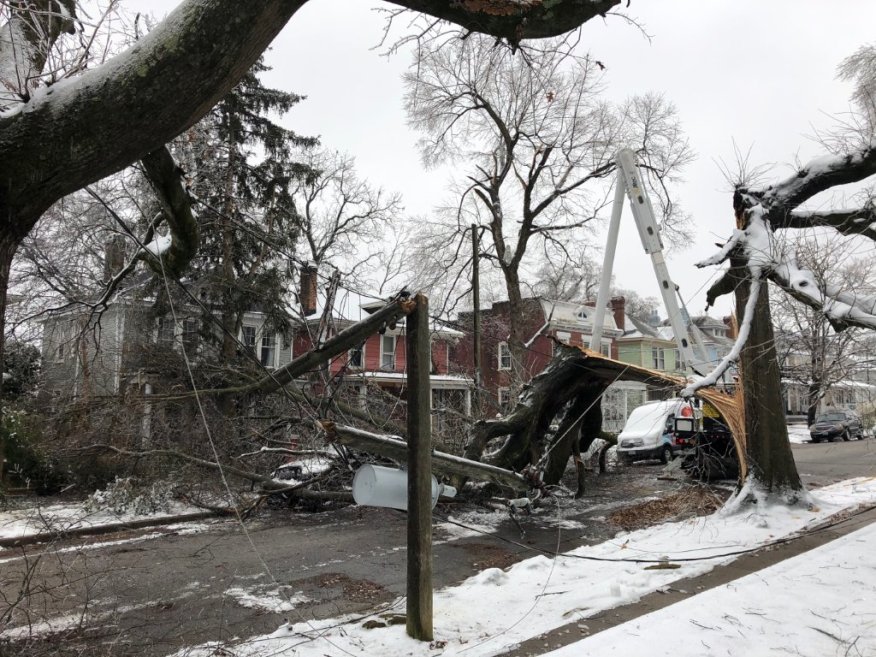
Former Cville Mayor Mike Signer calls out snow days
In the midst of one of the “Top 5 worst winter storms” according to Dominion Energy, former Charlottesville mayor Mike Signer took to Twitter and then the TIME magazine OP-ED section to complain about snow days, and to call out his Twitter critics directly.
Signer’s piece titled “Democrats Lost Virginia By Ignoring Parents. Snow Days Show They Still Are” discusses his disappointment in Charlottesville City Public School’s (CCPS) lack of online classes during snow days.
In the article, Signer directly compared snow days to the beginning of COVID-19 lockdown, citing Prince William County’s “code orange” snow day policy as an alternative, and asserted that the “shut-down approach” of schooling was a factor in the outcome of the Virginia gubernatorial election last year, but the article didn’t get into full swing until Signer claimed that his harsh Twitter critics provided him a “window into the outright condescension by many toward the parents who are bearing the brunt of today’s inflexible and outdated education policies,” and that “The feelings and ideas of … parents should be acknowledged … unless we want many more Youngkins in the years to come.”
While Signer’s main argument, that those he feuded with on Twitter put him in the same position as those who voted for Youngkin the gubernatorial election, is not one that most Twitter readers got behind, there certainly has been some policy talk on snow days in a peri-COVID era.
To start, the Virginia General Assembly already passed a law, in March 2021 no less, that gives school systems the ability to call for virtual learning for up to 10 days when unexpected events occur, such as snow days. In fact, the Virginia Department of Education issued a draft guidance that prerequired schools to ensure that teachers and students had access to power, individualized education services, meals, and computing devices, among other things. Failing to provide these and being able to provide this remote learning, school districts would otherwise default to adding missed days to the end of the school year, as is standard policy for most school districts in Virginia prior to this law.
Prince William County was one of the next jurisdictions in Virginia to have a policy change in this matter, with their “Code Orange” policy. “This code will be used when weather conditions are marginal and impact road or sidewalk safety conditions but are not so severe … employees will work remotely, students will work asynchronously (not live),” said the issuance from Prince William County Public Schools (PWCS) in December 2021. However due to the poor road conditions and the power outages from Prince William and surrounding counties, PWCS issued a “Code Red,” or school cancellation without online learning, during the week of the snowstorm and has pending makeup days “due to the unusual January weather.”
Interestingly enough, Charlottesville City Schools also canceled school on Jan. 3, but students remained out longer due to “road closures and power outages” and “overnight precipitation/freezing temps” which led to CCS school cancellations until Jan. 10. By Jan. 6 of that week, roughly 38,000 Dominion energy customers still had not had power restored, a good portion of which were in the rural counties where public school teachers can afford to live.
But why would CCS not do away with snow days entirely and opt for online instruction in instances where power outages don’t occur? For one, digital truancy is already an issue for K-12 education right now. Attendance rates for high-income and low-income students are already disparate, and as pointed out in Signer’s article, during lockdown “teachers scheduled optional weekly Zoom calls, but those calls were just sessions where students aimlessly said hello to each other for 30 minutes.” Would these impromptu classes be any better? Would attendance be significant enough to warrant snow day classes, particularly when 173,000 students in Virginia don’t have access to broadband or computers at home?
Overall, experts agree that keeping school open during snow days is typically detrimental to student performance, while it may seem counterintuitive. “They need to consider the downside when deciding not to declare a snow day during a storm—the fact that many kids will miss school regardless … And because those absences typically aren’t made up in the school calendar, those kids can fall behind,” said one such expert, Harvard Kennedy School Assistant Professor Joshua Goodman, in his 2012 study on the impact of snow days on student achievement.
Unless Signer plans to run for office on a platform of banning snow days, or some legislative body manages to solve the systemic problems that would have to precede to make that policy viable, this issue is unlikely to show itself again. In the words of the staff of C-ville Weekly, “Our 2 cents? Get out there and make a snowman, Mike. Live a little.”


